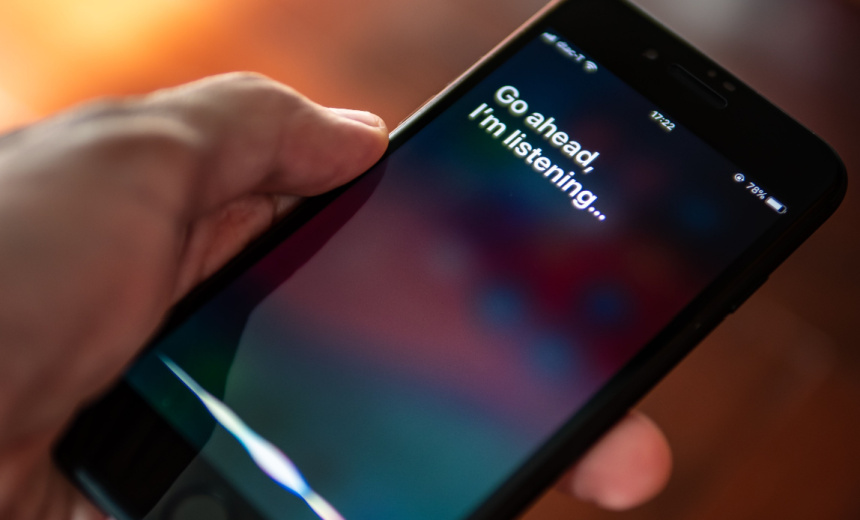Governance & Risk Management
,
Privacy
Plaintiffs Sued After Report that Apple Eavesdropped on Intimate Moments

Apple agreed to pay $95 million to settle a lawsuit accusing the smart device giant of illegally recording audio through its Siri virtual assistant and sharing extracts with human reviewers.
See Also: Using the Netskope HIPAA Mapping Guide
Plaintiffs in 2019 alleged Apple devices automatically activated Siri while users were having private conversations at home, resulting in targeted advertisements based on these communications.
Sparking the lawsuit was a 2019 report from The Guardian citing an anonymous Apple whistleblower who disclosed the company allowed contractors to hear recordings taken by Siri, including intimate moments such as couples having sex, discussing medical information or making drug deals. Apple told the newspaper it transmitted a small percentage of Siri recordings for analysis with the goal of improving Siri, which has gained infamy for its garbled responses to user requests. Apple also said the audio snippets were not associated with any user’s Apple ID.
Apple maintained that Siri should only have activated after hearing the “wake word” phrase “Hey Siri” virtual assistant introduced in 2011. But, “far from requiring a ‘clear, unambiguous trigger’ as Apple claimed , Siri can be activated by nearly anything, including ‘the sound of a zip’ or an individual raising their arms and speaking,” plaintiffs alleged.
Under the proposed settlement, Apple would not acknowledge wrongdoing. District Judge Jeffrey White in the U.S. District for the District of Northern California must sign off on the proposal. Attorneys from both side of the lawsuit will urge him to do so during a scheduled Feb. 14 court hearing.
Class members who purchased Siri-enabled devices between Sept. 17, 2014 and Dec. 31, 2024, could receive $20 per device. Apple would also be required to delete audio it collected using Siri before October 2019.
Plaintiffs accused the company of violating the federal Wiretap Act, California Consumer Privacy Act, breach of contract, as well as unfair competition. White dismissed claims of unfair competition in 2021.
